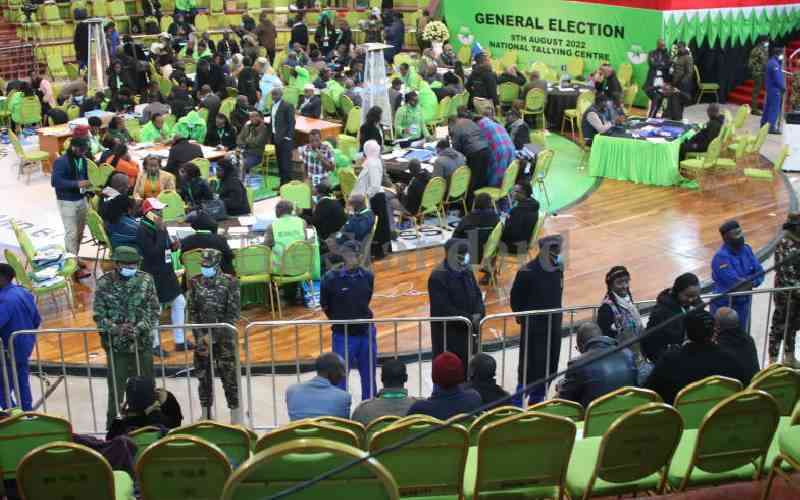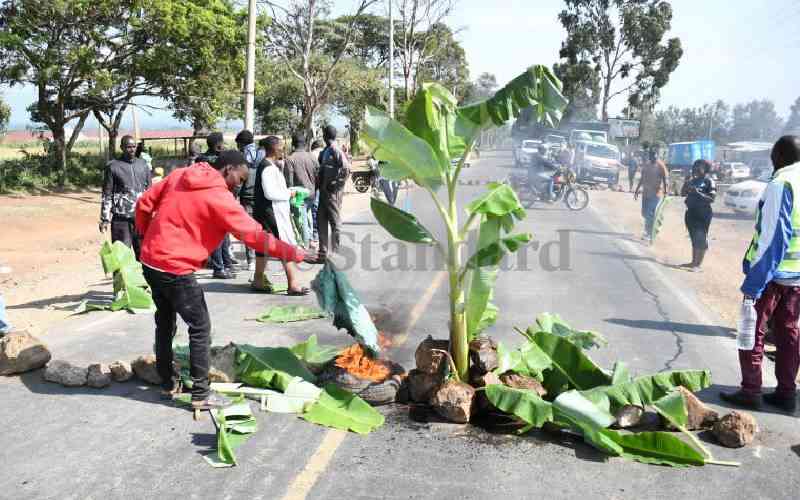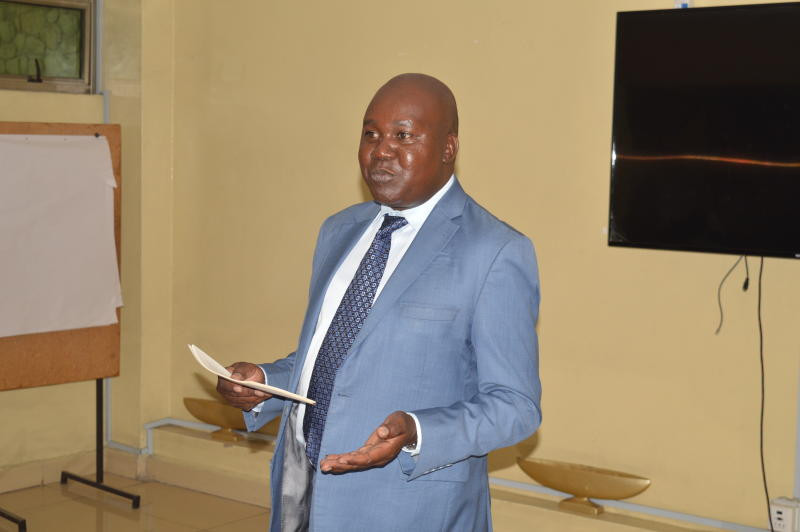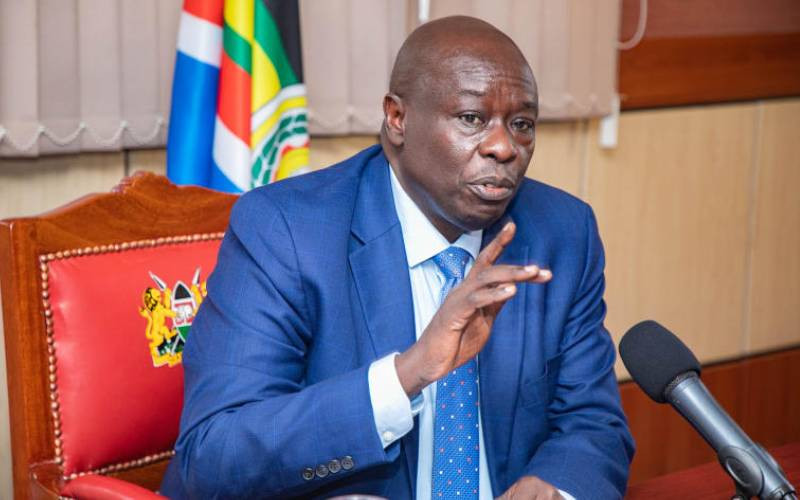By WAHOME THUKU
The Il Chamus, the second smallest community in Kenya, are renowned for legal battles in defence of their rights.
The community, which calls Baringo County home, has less than 50,000 members and only two lawyers. Some years back, the Il Chamus sued the Government for compensation over an exotic thorny shrub that had caused devastation to their environment and livestock.
They even took a goat before the judge as evidence of harm caused and although they lost the case, it was not without a fight.
The community is now up in arms against the Independent Electoral and Boundaries Commission (IEBC) for allegedly ignoring a court order to consider them in the creation of new electoral zones.
They have instructed seasoned lawyer Pheroze Nowrojee to move to court urgently and challenge the creation of new boundaries after they missed out in the new 80 constituencies.
Ironically, one of the two Il Chamus lawyers, Mr Thomas Letangule, who has led them in past court battles is now an IEBC commissioner. The other learned tribesman, Mr John ole Tamar, is a magistrate with the Judicial Service Commission.
The Il Chamus, who are more commonly known as Njemps, are regarded as one of the minority groups in the world. They live around the shores of Lake Baringo, within Baringo Central constituency.
Baringo inhabitants
Baringo District is mainly inhabited by the Turgen while neighbouring districts are inhabited by the Maasai, Pokot and the Samburu.
The Il Chamus claim they settled in Baringo Central in 1800, and occupy Salabani, Mukutani, Ngambo, Ilchamus and part of Marigat wards. By 2004, their population was estimated at about 30,000.
They regard themselves as one of the indigenous communities pushed to the area by Maasai clan wars. In fact, Il Chamus is a Maasai name meaning people who can see into the future. They were later renamed the Njemps by the Europeans.
On March 12, 2004, they filed a petition at the High Court seeking a declaration that they were entitled to representation by one of their own in Parliament. The case against the Attorney General and the now defunct Electoral Commission of Kenya (ECK) drew international attention.
The community sought 19 declarations but key among them was that they had been denied their constitutional rights, that they had been disenfranchised in the elections as none of its members was an MP and that constitutional provision on protection of minorities had not been implemented.
They claimed that chances of one of their own being MP in Baringo Central constituency was practically impossible given their few numbers thus the push to have one of their own appointed as a nominated MP.
Stay informed. Subscribe to our newsletter
Their representative, Mr Rangal Lemeiguran filed a detailed affidavit setting out the history of the community.
Historical records
The case was heard by judges Joseph Nyamu and Mathew Emukule.
Their lawyers produced comprehensive statistics from electoral registers and census reports. They also produced historical records and books authored by social science researchers on the Il Chamus.
The AG filed appearance in court but did not file any papers in response to the allegations. The ECK, however, put up a strong defence.
In a preliminary objection, the ECK argued that the application was bad in law, lacked merit and facts. Through the then chairman Samuel Kivuitu and his deputy Gabriel Mukele, they argued that the application was frivolous and vexatious and an abuse of court process.
They submitted that Ilchamus was a Maasai clan and representation could not be based on clans.
They submitted that Baringo Central then had 48,000 voters and they had not been registered on community basis. The ECK claimed according to their statistics, the Il Chamus members numbered only 16,012, who were living with the Samburu and Maasai in Baringo.
But the Il Chamus denied that they were a clan of the Maasai, saying they spoke distinct a language from all their neighbors including the Turgen and Pokots.
Their lawyer, Nowrojee, submitted that his clients were a minority protected under various instruments in international law.
Judges Nyamu and Emukule wrote a 180-page judgment capturing in details the history of the Il Chamus. They analysed in depth both the (old) Constitution and international law on representation of minorities.
The judges also analysed in depth the roles and duties of the ECK in ensuring equal representation. They further analysed the population distribution in various constituencies in the Rift Valley and their representation.
They observed that the Il Chamus occupied 1,500 square kilometres in Baringo Central and rejected assertions that they were a branch of the Maasai.
"We find this description extremely casual and unfortunate," the judges said. "The evidence submitted in court sufficiently points to a unique cohesive, homogenous and cultural distinct minority, which is quite conspicuous by any standards." They went on, "The literature presented to us demonstrated exceptional solidarity in preserving their culture."
Minorities
Using the United Nations definition of ‘minority’, the judges concluded that the Il Chamus qualified as a minority group.
"Perhaps the words ‘people who see far’ were prophetic because they have sought from a constitutional court, constitutional justice for themselves and implicitly for others in the future," the judges quipped.
The court issued several declarations on the rights or representation for the majority. It then directed that "in the event of any future constituencies being created by an Act of Parliament or any other review being undertaken, the Il Chamus be processed by the ECK (now IEBC) with the defined criteria".
Despite making dozens of petitions and representations to the IEBC and other authorities, including Parliament, the community has missed out in the division of electoral areas announced by the IEBC last week.
They have now prepared a petition to block the gazettement of the new boundaries in Baringo County, but have less than a month within which to challenge the creation of the new boundaries.
The writer is a court reporter with the Standard Group
Email: [email protected]
 The Standard Group Plc is a
multi-media organization with investments in media platforms spanning newspaper
print operations, television, radio broadcasting, digital and online services. The
Standard Group is recognized as a leading multi-media house in Kenya with a key
influence in matters of national and international interest.
The Standard Group Plc is a
multi-media organization with investments in media platforms spanning newspaper
print operations, television, radio broadcasting, digital and online services. The
Standard Group is recognized as a leading multi-media house in Kenya with a key
influence in matters of national and international interest.
 The Standard Group Plc is a
multi-media organization with investments in media platforms spanning newspaper
print operations, television, radio broadcasting, digital and online services. The
Standard Group is recognized as a leading multi-media house in Kenya with a key
influence in matters of national and international interest.
The Standard Group Plc is a
multi-media organization with investments in media platforms spanning newspaper
print operations, television, radio broadcasting, digital and online services. The
Standard Group is recognized as a leading multi-media house in Kenya with a key
influence in matters of national and international interest.







